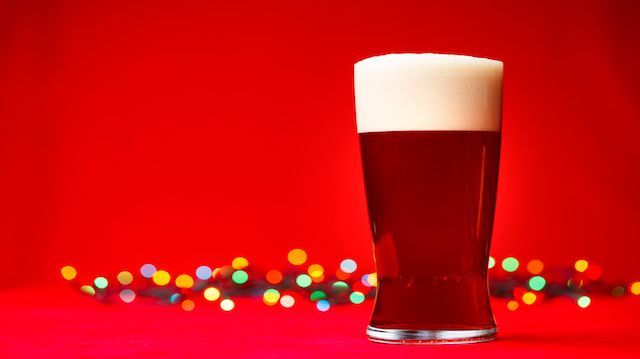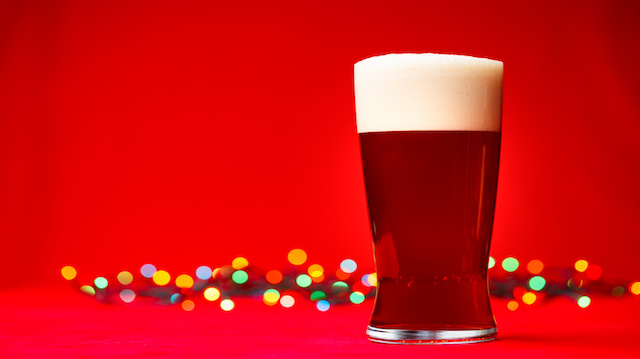
The holiday season is filled with joy and merriment, and the festivities often involve alcohol. Unfortunately, overindulgence usually means a hangover the next day.
Many cultures around the world recommend a certain food or drink to relieve the symptoms of a hangover. Researchers have examined multiple hangover remedies, but the only surefire way to prevent a hangover is to abstain from alcoholic beverages altogether.
Overindulgence seems to be synonymous with the holiday season, whether it is food, spending, or alcohol. In fact, there is even a term used for holiday hangovers: holiday heart syndrome. This describes the effects of alcohol overindulgence, which can lead to a weakening of the heart muscle, and possible alcoholic cardiomyopathy, according to the National Institute on Alcohol Abuse and Alcoholism.
According to the Mayo Clinic, hangover symptoms include fatigue, thirst, headaches, poor sleep, the shakes, depression, lack of focus, and a rapid heart rate.
So, how can you avoid these hangover symptoms this holiday season, short of total abstinence? This is the million-dollar question researchers and doctors have yet to answer. “The problem is, we still don’t know exactly what about drinking causes a hangover, so it’s difficult to know exactly what will prevent one, other than drinking little or not at all,” Dr. Sharon Horesh Bergquist, an associate professor at Emory University Hospital in Atlanta, told CNN.
One factor associated with hangovers is the amount of alcohol you consume. Alcohol increases the amount of bathroom breaks you need to take, and this causes dehydration. Dehydration is what brings about the thirst, dizziness, and headache you experience when you crack open your eyes the next morning.
Drinking a bit too much with crazy Uncle Larry this holiday season may also trigger an immune system inflammatory response. This inflammation can lead to a lack of focus and a lack of interest in any family activities the next day — which goes against the holiday spirit!
The Mayo Clinic cites a few other effects of excess alcohol consumption:
- Alcohol irritates your stomach, causing nausea and vomiting.
- Too much may cause a significant drop in your blood sugar.
- Alcohol expands your blood vessels, which may be linked to those pounding headaches.
- It makes you sleepy and fatigued, but you will also not get the rest you need.
- Alcohol contains congeners (chemical byproducts of fermentation), which are more prevalent in darker alcohols.
Preventing a holiday hangover is challenging, since everyone metabolizes alcohol in a different way, Dr. Bergquist told CNN. Some people can drink more than others.
 If you get a bit too carried away with the holiday spirit, and your nose and rosy cheeks begin to resemble those of Old Saint Nick, then preventing a hangover may be out of reach. However, there are a few alternative ways to help combat the unpleasant symptoms you experience the next day.
If you get a bit too carried away with the holiday spirit, and your nose and rosy cheeks begin to resemble those of Old Saint Nick, then preventing a hangover may be out of reach. However, there are a few alternative ways to help combat the unpleasant symptoms you experience the next day.
To battle dehydration, you could drink water during and between each alcoholic drink. Also, get some sustenance in your stomach. However, steer clear of greasy food; eating greasy food to help relieve hangover symptoms is a myth. Dr. Bergquist recommends healthy protein and carbohydrates to quell the stomach issues that arise with a hangover.
You know your body better than anyone else, and consuming food and alcohol in moderation is the best way to enjoy the holidays.
How will you avoid hangovers this holiday season?
—The Alternative Daily
Sources:
http://www.mayoclinic.org/diseases-conditions/hangovers/basics/causes/con-20025464
http://www.mayoclinic.org/diseases-conditions/hangovers/basics/symptoms/con-20025464
http://www.emoryhealthcare.org/physicians/h/horesh-bergquist-sharon.html
http://pubs.niaaa.nih.gov/publications/Hangovers/beyondHangovers.htm

